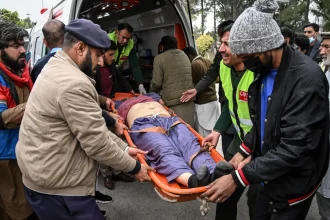Sierra Leone’s President, Julius Maada Bio, has been elected as the new Chairman of the Authority of Heads of State and Government of the Economic Community of West African States, succeeding Nigeria’s President Bola Ahmed Tinubu.
Recall that President Tinubu had led the regional bloc for the past two years.
The announcement was shared via a post on X (formerly Twitter) on Sunday by Tinubu’s Special Adviser on Information and Strategy, Bayo Onanuga.
Earlier that day, President Tinubu hosted leaders from across West Africa at the 67th Ordinary Session of the ECOWAS Authority of Heads of State and Government. The summit took place at the Banquet Hall of the State House in Abuja, Nigeria.
The session marked the end of Tinubu’s tenure as ECOWAS Chairman, a role he was re-elected to on July 7, 2024, after initially taking office on July 9, 2023. The gathering came six months after the previous session, held in December 2024, and occurred amid significant developments within the bloc, including the announced withdrawals of Mali, Burkina Faso, and Niger Republic earlier this year due to military takeovers in those countries.
During the summit, leaders were expected to deliberate on pressing regional issues such as internal instability, the erosion of democratic norms, and persistent insecurity. Another major point of discussion was the push for stronger economic integration among ECOWAS member nations.
On the eve of the summit, President Tinubu delivered remarks at the inaugural West Africa Economic Summit (WAES), which took place at the newly opened Bola Ahmed Tinubu International Conference Centre.
Tinubu said, “The era of warm pit to the port must end. We must turn our mineral wealth into domestic economic value, jobs, technology, and manufacturing.” He stressed the need for member countries to move beyond exporting raw materials and instead invest in value-added processing and regional manufacturing to foster sustainable economic growth.
The Nigerian leader also voiced concern about the limited level of trade within the region, noting that intraregional trade among ECOWAS member states remains below 10 per cent.











